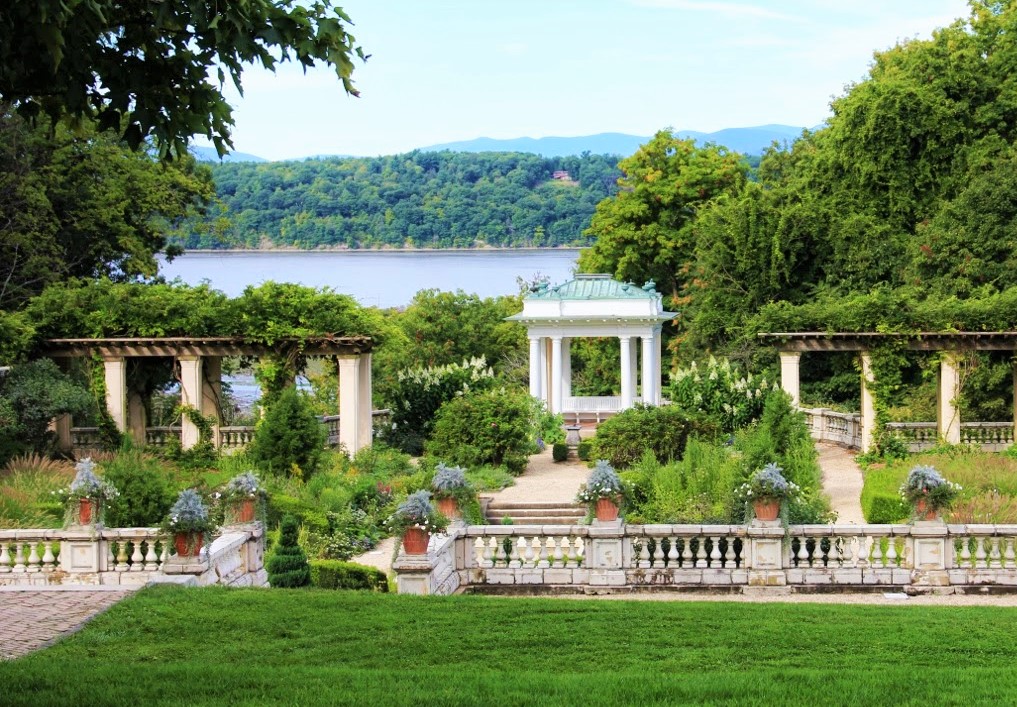The Levy Economics Institute of Bard College, founded in 1986 through the generous support of Bard College trustee Leon Levy, is a nonprofit, nonpartisan, public policy research organization. The Levy Institute is independent of any political or other affiliation, and encourages diversity of opinion in the examination of economic policy issues while striving to transform ideological arguments into informed debate.
What We Do
The ultimate purpose of all of the Levy Institute’s research and activities is to serve the wider policymaking community in the United States and the rest of the world by enabling scholars and leaders in business, labor, and government to work together on problems of common interest. To stimulate discussion of economic issues, the Levy Institute disseminates its findings through publications, conferences, workshops, seminars, congressional testimony, and other activities to an international audience of public officials, private sector executives, academics, and the general public. An annual conference on the state of the U.S. and world economies is dedicated to the economic legacy of Hyman P. Minsky, the late financial economist and Levy Institute distinguished scholar.
The Levy Economics Institute Graduate Programs in Economic Theory and Policy were created to offer students an alternative to mainstream programs in economics and finance. These innovative programs combine a rigorous course of study with the exceptional opportunity to participate in advanced economics research alongside Institute scholars.
The Levy Institute’s programs also give Bard College undergraduates the opportunity to meet the prominent figures who give seminars, attend conferences, and serve on the research staff. Through a Levy Institute affiliation with Cambridge University, one or two Bard undergraduates may spend their junior year at Christ’s College. Integrated activities of the Levy Institute and Bard College include the annual award of the Levy Economics Institute Prize to a graduating senior with an outstanding academic record in economics, and several annual scholarships for students concentrating in economics.
Blithewood Mansion
The main research and conference facility of The Levy Economics Institute is Blithewood, a turn-of-the-century mansion overlooking the Hudson River on the campus of Bard College.
The land was originally home to Algonquian-speaking Native Americans, who had inhabited the Hudson Valley region for more than a thousand years before colonial settlement. In 1680, Pieter Schuyler, the first mayor of Albany, was given rights to a tract of land that included the Blithewood site. Eight years later, he was issued a Crown Patent for 22,400 acres (slightly larger than the towns of Red Hook and Tivoli) under a land-grant system that eventually took much of the state from the Native people. In 1795, John Armstrong Jr. and his wife, Alida Livingston, purchased the property.
The grounds began their metamorphosis from untamed woods into a carefully landscaped estate in the 1830s, when Robert Donaldson of North Carolina acquired the property and gave it the name Blithewood. He commissioned Andrew Jackson Downing, one of the foremost landscape artists of the day, to design the grounds. In 1853 Blithewood was purchased by John Bard of Hyde Park, who in 1860 gave a corner of the estate for the founding of St. Stephen’s College, which became Bard College in 1934. In 1899 Captain Andrew C. Zabriskie, a cattle breeder, numismatist, and antiquarian, purchased the estate and retained Francis Hoppin, an alumnus of the architectural firm McKim, Mead & White, to design a manor house and garden. Hoppin produced a house in an eclectic, grand style, blending architectural and decorative elements from centuries of English mansion design with the latest turn-of-the-century technology. Captain Zabriskie’s son donated the estate to Bard College in 1951. Finally, the College transferred Blithewood to the Levy Economics Institute in 1987.

Restoration
Restoration of the building was directed by the architectural firm of James Polshek and Partners, noted for its restoration of Carnegie Hall. Marvin D. Schwartz of The Metropolitan Museum of Art supervised the furnishing of rooms in period style. The formal Italian garden was also restored. The renovated Blithewood now contains offices for scholars and staff, a library, and several lecture and meeting rooms. It is equipped with advanced computer and communications systems to provide extensive research resources.
Blithewood’s location offers easy access to and from New York, Albany, Boston, and more distant places by automobile, rail (Amtrak), and air (Stewart International and Albany Airports).

